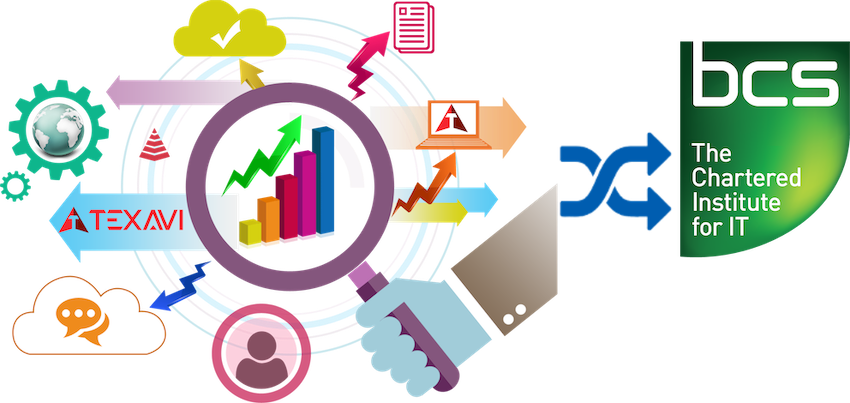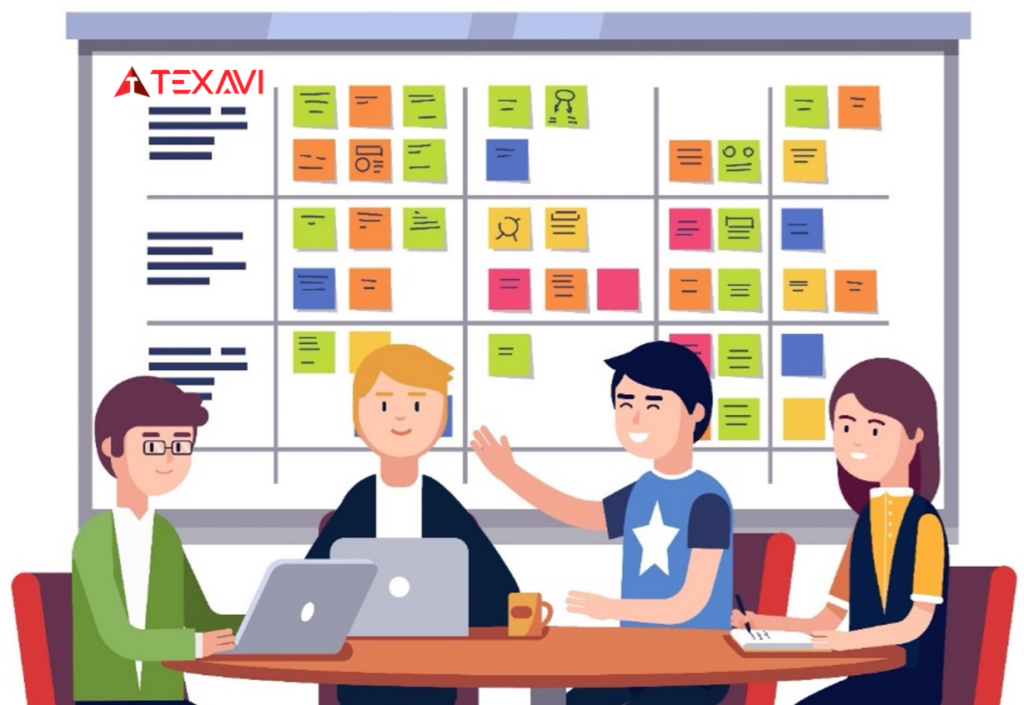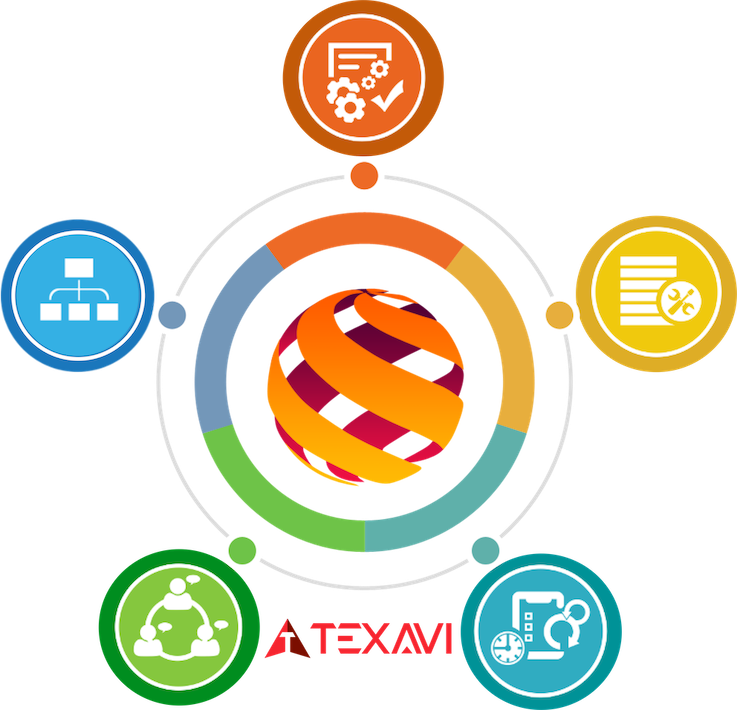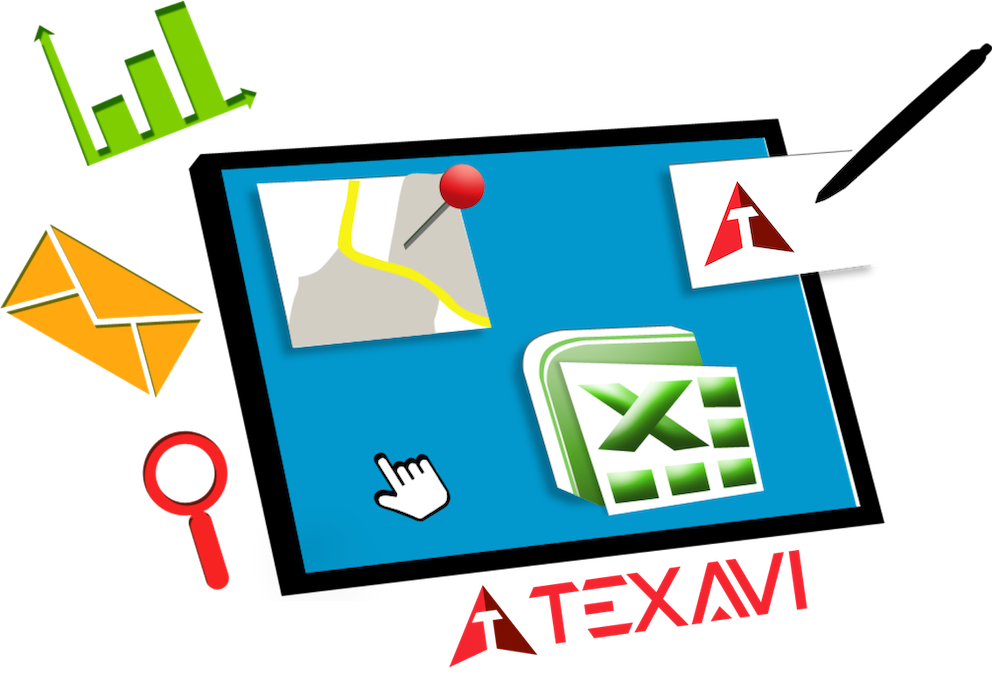BCS Professional Certificate in Data Analysis
Concepts, Principles, Practices, Techniques and Tools for Analysing and Modelling Data. Select Course Date and Time Based on Your Convenience!
- Instructor-led, Online
- Course Category: Business Analysis, Data, Certification, BCS, Professional
GBP
250
Instructor-led, Online
Duration: 16 Hours
Course Code: TXV-BCS-DA3
Skill Level: Intermediate
BCS Professional Certificate in Data Analysis
Overview
In the digital age of rapidly changing technologies and megatrends, data is regarded as the new goldmine of organisations and rightly so. Over the past few decades, businesses have been investing effort, time and money in collecting, storing and curating different types of data. However to truly harness the power of data, IT teams should not only define and implement policies and procedures to manage data, but also transform and analyse the data so that actionable insights are drawn, leading to efficient decision-making and successful outcomes. Take the TEXAVI Course on BCS Professional Certificate in Data Analysis, enhance your data skills, raise your profile and super-charge your career potential!


Who can attend?
- Anybody with or without work experience
- IT professionals (eg., Developers, testers) considering a move to BA role
- Non-IT people who want to learn IT skills thinking of a career switch
- Graduates and university students who aspire to get into IT industry
- Students who have just passed their B. Tec, A-Levels or college studies

COURSE OUTLINE
-
Module 1: Introduction to Data Analysis
-
Module 2: Methods and Techniques in Data analysis
-
Module 3: Overview on Data Modelling
-
Module 4: Approaches in Data Modelling
-
Module 5: Entity Relationship Modelling
-
Module 6: Rationalising Data Using Normalisation
-
Module 7: Modelling Analysis Classes and Objects
-
Module 8: Data Validation Techniques

What will you learn?
By the end of this course, you will be able to:
-
Define data and explain the importance of data
-
Define data analysis and data modelling
-
State the rationale for analysing and modelling data
-
Highlight the techniques used in data analysis
-
Explain the approaches to data analysis and modelling
-
Describe top-down data modelling approaches
-
Describe bottom-up data modelling approaches
-
Specify the applications of business modelling
-
Discuss the steps involved in business modelling
-
Highlight the guiding principles of system modelling
-
Specify the applications of system modelling
-
Describe the different perspectives in system modelling
-
Discuss the types of system modelling and their uses
-
Functional modelling
-
Systems architecture
-
Business process modelling
-
Enterprise modelling
-
-
Define impact analysis and explain its applications
-
Elaborate on the methods of impact analysis
-
Traceability impact analysis
-
Dependency impact analysis
-
Experimental impact analysis
-
-
Explain the steps to conduct impact analysis
-
Discuss the importance of communication in data analysis
-
Explain the techniques involved in effective communication
-
Storytelling
-
Data visualisation
-
Critical thinking
-
Prevent data for impact
-
Clarity and concision
-
-
Discuss the importance of training in data analysis
-
Describe the applications of training in data analysis
-
Define entity-relationship model
-
Explain the content of an entity-relationship model
-
Describe how to identify entities and attributes
-
Explain the entity types and entity occurrences
-
Elaborate on the attribute types and attribute occurrences
-
Highlight the differences between simple and compound keys
-
Describe the different notations in ER model
-
Chen notation
-
Crow/Crow’s foot notation
-
Arrow notation
-
UML notation
-
-
State the definitions and purposes of different types of ERD models
-
Conceptual data model
-
Logical data model
-
Physical data model
-
-
Explain the steps involved in creating an ERD model
-
Specify the different attributes types and explain their uses
-
Simple attributes
-
Composite attributes
-
Single-valued attributes
-
Multi-valued attributes
-
Derived attributes
-
Key attributes
-
Stored attributes
-
Complex attributes
-
-
Define an entity occurrence and describe the different types
-
Explain how entities are classified as super-types and sub-types
-
Explain the cardinality (1:1, 1:M, M:M) in relationships among entities
-
Describe optionality in relationships among entities
-
Elaborate on exclusivity of relationships among entities
-
Explain the recursive relationship among entities
-
State the best practices in naming the relationships
-
Define normalisation process and expand on the rules
-
State the purpose, advantages and disadvantages of data redundancy
-
Explain the different types of data anomalies
-
State the definition, rules and applications for first normal form (FNF)
-
State the definition, rules and applications for second normal form (SNF)
-
State the definition, rules and applications for third normal form (TNF)
-
Define the third normal form (TNF) tests
-
Explain rationalisation of TNF results from multiple data sources
-
Describe the steps involved in the development of TNF model
-
Define classes and objects in the context of data models
-
Highlight the different types of objects
-
Boundary object
-
Entity object
-
Control object
-
-
Define boundary classes and objects and explain how to find them
-
Define entity classes and objects and explain how to find them
-
Define control classes and objects and explain how to find them
-
Describe the structure of a class- name, attributes, operations
-
State the definition of associations and how to name them
-
Specify definition of multiplicity and its link to association
-
Explain the process of naming associations
-
Define generalisation and describe steps in implementing generalisation
-
Specify the purpose of data validation and state data validation techniques
-
Define cross-referencing matrices and give some examples
-
Explain the role, purpose and structure of CRUD matrix

What do you need?
There are no pre-requisites for this course. There is no need for any prior experience, working knowledge or awareness of software development or projects experience. The course is suitable for experienced professionals working in the industry or academia, aspirants and early stage professionals, as well as students in universities and colleges. Professionals and aspirants from technology, business, operations or sales are all welcome to explore and understand the agile methodologies alongside their concepts and principles.

WHAT'S INCLUDED?
- 24×7 access to TEXAVI’s high quality course content
- Practical insights from real life IT projects
- Course completion certificate
- Case studies, examples and illustrations
- Interactive quizzes and challenges
- Job aids, resources and tools
- Access to TEXAVI’s collaborative digital platform

Why Texavi?
-
TEXAVI is a proven leader in delivering non-coding IT learning, worldwide
-
We are not just trainers, but practising IT professionals with 25+ years of work exp
-
Our courses get you job-ready with practical and real-time insights
-
Qualify for certificates upon completion and complete our assessments
-
Pave way for industry-recognised certifications
-
Access to treasure of Texavi’s high-quality, content-rich resources and materials
-
Get discount voucher to our popular courses on Udemy
-
24×7 access to Texavi’s interactive platform with personalised content

Sample Course Video
TEXAVI Tests
Test Your Knowledge

Take the Texavi Tests and challenge yourself, simply click the below links and start the interactive quiz…
- Quiz on Data Models – Foundation Concepts, Principles and Techniques
- Quiz on Dimensional Modelling – Introduction, Concepts and Principles
- Quiz on Business Analysis Concepts As Per BCS
- Quiz on techniques, tools and resources for business analysis
- Quiz on Practical Business Analysis – Essential Aspects
- Quiz on Business Analyst’s Resources, Sources and References
- Quiz on Elicitation and Collaborating with Stakeholders – Assessment Quiz 1
- Quiz on Elicitation and Stakeholder Collaboration: Methods and Techniques – Assessment Quiz 2
- Quiz on Elicitation and Stakeholder Collaboration: Communication and Management – Assessment Quiz 3
- Quiz on Business Analysis Planning and Monitoring – Assessment Quiz 1
- Quiz on Planning and Monitoring Business Analysis – Assessment Quiz 2
- Quiz on Why Business Analysis? Rationale and Value-add of BA
- Quiz on Roles and Responsibilities of Business Analyst
- Quiz on Requirements Assessment, Approval and Management
Trainer Profile

Your trainer for this course is Pardha Saradhi Mantravadi. Pardha is a seasoned and well-qualified trainer, coach, mentor, influencer and thought leader. He has rich and varied IT-industry experience of 25 years, working in working in different roles as a Business Analysis professional with blue-chip organisations viz., HSBC, Deutsche Bank, Dyson, Asda, Cambridge University Press, Roche, King’s College London , Royal Society of Chemistry etc. Pardha delivers his training sessions by blending the concepts and principles with practical insights from real-life projects and programs…click here to view the complete trainer profile
Reviews
“The delivery was consistent, thoughtful and measured. Texavi’s masterclass worked well for me.”
– Louise Caldwell, OMT Group
“I enjoyed the bootcamp and found it very inspiring. I found your description of digital transformation very useful and I liked the examples that were given about successful digital businesses.”
– Dr. Carrie Mowatt, Royal Society of Chemistry
“What I like most about Pardha is the way he easily blends empathy for users within day-to-day software development tasks. This mix of vision and execution is rare and powerful.”
– Sarbajit Sen, Steelwedge Software
“Recently Texavi conducted a workshop on Agile methodologies. The trainer’s knowledge on Agile methodology has its roots grounded in experience.”
– Tazeen Sheikh, Mastek
” The trainer is very well-informed. I learnt a lot of background to digital transformation and artificial intelligence and how businesses can use them.”
– Robert Bowles, RSC
“I attended Texavi’s training on Agile Business Analysis and had a lot of takeaways from the session. Pardha’s effective presentation skills supported with context you can relate to, makes the entire experience exhilarating.”
– Abhijeet Majumdar, Zensar Technologies
“The workshop was quite interesting. I found the exercises we did particularly valuable, as it was useful to discuss with the others present, and to then feedback to the wider group.”
– Holly Sheahan, Cambridge Partners
“Excellent speaker, very knowledgeable. Lovely manner and gentle approach.”
– Linda Clifford, Marketing Success
“Texavi has delivered a fantastic product which was above expectations. The ISBE DataHub will support operational and strategic efforts, at the same time reducing the burden of work for staff at KCL.”
– Christine Manoharan, King’s College London
“The workshop was quite interesting, liked the practical and interactive parts. Texavi’s Digital Business Maturity Model is really helpful and necessary for success.”
– Julio C Garcia, Creanto
“The trainer, Pardha is professional yet very friendly, made everyone feel welcome.”
– Chantal Gilbert, BusyBee Consulting
Related Courses
Foundation Certificate in Dimensional Modelling for Data Warehouse
BCS Professional Certificate in Benefits Planning and Realisation
BCS Practitioner Certificate in Modelling Business Processes
BCS Professional Certificate in Stakeholder Engagement
BCS Practitioner Certificate in Requirements Engineering
BCS Foundation Certificate in Business Analysis
BCS Practitioner Certificate in Business Analysis Practice
Career and Profession of Business Analysis
Skills and Competencies of a Business Analyst
Practices and Methods in Business Analysis
Techniques and Tools of a Business Analyst
Product Scoping and Prioritisation
Software Estimation – Practices and Techniques
Vision and Roadmap in Product Development
IIBA Entry Certificate in Business Analysis (ECBA) Certification
IIBA Certified Business Analysis Professional (CBAP) Certification
IIBA Certification of Capability in Business Analysis (CCBA) Certification
Texavi Toolkit
Why new-age, digital and agile business analysis isn’t all about managing requirements
Texavi post on BA moving beyond writing requirements
TEXAVI white paper on building your career as a business analyst
Texavi blogpost on Realm and reach of New-age Business Analyst, Product Owner
Top tips for the new-age, tech-savvy business analyst
Texavi article on why once an analyst, always an analyst
Post on the digital, agile and social business analysis professional
Mind the gap! Texavi’s post on tips for good product management
Leader. Architect. Soldier. Team Player – the many facets of business analyst
Get the right skills and competencies – the core building blocks for a business analyst
